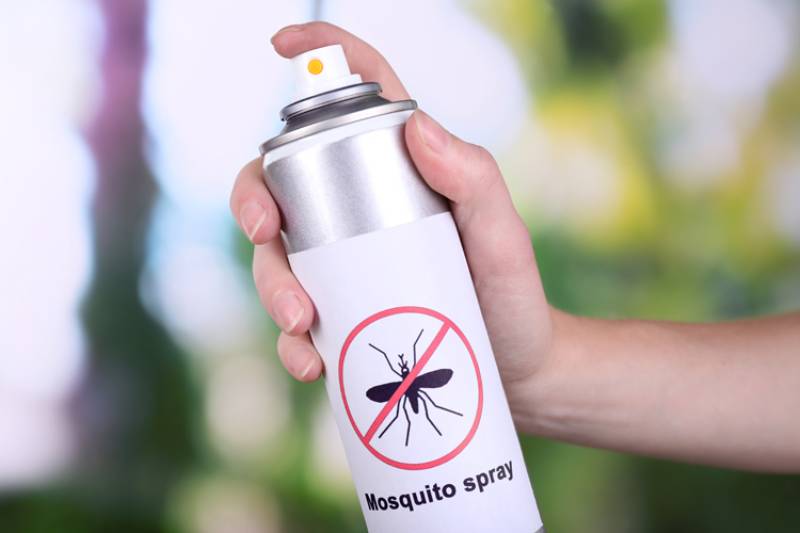Whether at home, in the compound, or on a farm field, no one loves the disturbance of insects. To fight against pesky insects, insecticides are the go-to solution for many homeowners and professionals alike. While they offer quick relief from infestations, one burning question people get curious about remains how long insecticide lasts after spraying?
Quick Tip: Depending on the nature of insecticide used and the degree of usage, it may take a few hours for an insecticide to last after spraying, typically between 1 to 4 hours. However, some residual insecticides may last for weeks to months.
Keep reading to discover the factors that affect insecticide longevity, including how long different types of pest control substance lasts.

What To Know About Insecticides
Insecticides are chemical compounds designed to eliminate or repel insects. They come in various forms, including sprays, dusts, and baits, each with its unique characteristics. When applied correctly, insecticides can be remarkably effective, but their staying power can vary widely.
The following key factors play a pivotal role in determining how long insecticide remains effective after spraying:
1. Type of Insecticide
Different insecticides have different lifespans. Some are so potent for quick knockdown, providing immediate results but with shorter residual effects. Others are formulated for long-term protection, offering extended control over a wider timeframe.
2. Environmental Conditions
Weather can be a game-changer. Rain, sunlight, and temperature fluctuations can all affect the longevity of insecticides. For instance, heavy rainfall can wash away the chemical residue, reducing its effectiveness.
3. Application Method
Also, how you apply the insecticide matters. Spraying it directly onto surfaces may provide better adhesion and longer-lasting effects compared to a fogging or misting application.
4. Surface Porosity
In addition, porous surfaces, like untreated wood or fabric, may absorb insecticides, reducing their effectiveness over time. Non-porous surfaces, on the other hand, may retain the chemical residue longer.
Now that we’ve outlined these crucial factors, let’s explore the typical lifespan of insecticides based on their types.
Types of Insecticides and How Long They Last
Here’s a breakdown of some common types of insecticide and how long you can expect them to last after application:
1. Contact Insecticides
Contact insecticides are designed for immediate knockdown upon contact with pests. They typically offer short-term residual control, lasting anywhere from a few hours to a few days.
Pyrethroids such as Lambda-cyhalothrin and Organophosphates like Malathion are popular contact insecticides. They kill insects upon direct contact and often functions in sprays, coils, and aerosols.
2. Residual Insecticides
Residual insecticides are formulated to provide long-lasting protection. Depending on the brand and specific product, residual insecticides can remain effective for several weeks to several months. Users apply them to surfaces where pests are likely to crawl or land.
Products like Cypermethrin, Deltamethrin, and Permethrin commonly function as residual insecticides. They provide long-lasting protection by leaving a residue on surfaces that repels or kills insects.
3. Systemic Insecticides

Systemic insecticides are absorbed by plants, making them toxic to insects that feed on treated vegetation. They can provide protection for an extended period, sometimes up to a growing season, but their effectiveness depends on the plant’s health and growth rate.
Imidacloprid and Thiamethoxam are systemic insecticides used in Nigeria. These are applied to plants and are absorbed by the plant’s vascular system, making them toxic to insects that feed on the plant.
You might want to see the best insecticide you can use to kill mosquitoes in Nigeria.
How About Domestic Insecticides Used in Various Homes?
Common insecticides like Mortein, Raid, and Rambo may contain different active ingredients depending on the specific formulation and product line. However, many household insecticides, including some formulations of Mortein and Raid, do indeed contain pyrethroids as their active ingredients. Thus, they last just a few hours.
Pyrethroids are synthetic chemicals designed to mimic the insecticidal properties of pyrethrins, which are natural insecticides derived from chrysanthemum flowers.
To know the active ingredient and class of insecticide in a specific product, check the product label, which is required to list active ingredients and provide usage instructions. Always follow the manufacturer’s recommendations and safety guidelines when using any insecticide.
Making the Most of Insecticide Longevity
Now that you have a better understanding of the factors influencing insecticide longevity and the types of insecticides available, here are some tips to maximize the effectiveness of your pest control efforts:
1. Choose the Right Type: Select an insecticide that suits your specific pest problem and the desired duration of control. If you need long-lasting protection, opt for residual insecticides.
2. Follow Instructions: Always follow the manufacturer’s instructions for mixing and application. Using the correct concentration and technique is crucial for optimal results.
3. Preventative Measures: Combine insecticide application with preventative measures such as sealing cracks and crevices, maintaining cleanliness, and reducing attractants for pests.
4. Regular Inspections: Periodically inspect treated areas to assess the effectiveness of the insecticide. Reapply as needed to maintain control.
5. Consider Professional Help: For persistent or severe infestations, consider hiring a professional pest control service. They have access to specialized products and expertise to handle challenging situations.
Final Note
Insecticides are valuable tools in the fight against insects, but how long they last after spraying depends on several factors, like the type of insecticide, environmental conditions, and the target pest. Understanding these factors and choosing the right insecticide for your needs is essential for effective pest control.
Remember that how long an insecticide lasts is just one piece of the puzzle. Combining proper application techniques, regular inspections, and preventative measures will help you keep your home or garden pest-free for an extended period.
